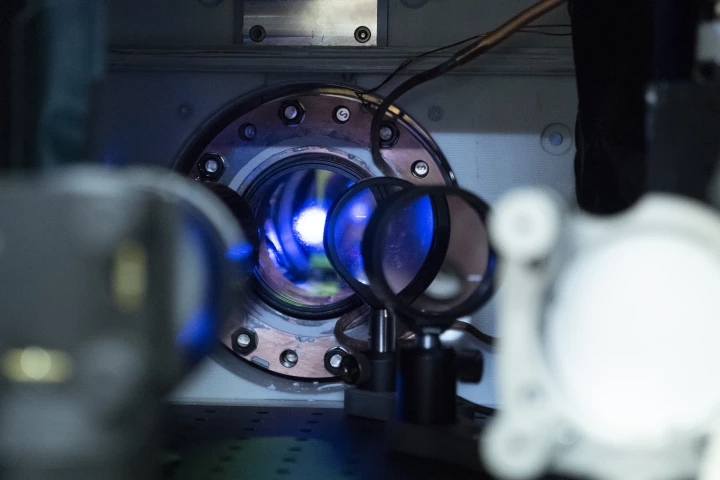JILA
-
Atomic clocks are our most accurate timekeepers, losing only seconds across billions of years. But nuclear clocks could steal their thunder, speeding up GPS and the internet. Now, scientists have built and tested the first prototype nuclear clock.
-
Scientists have developed the most accurate atomic clock – if you ran it for twice the current age of the universe, it would only be off by one second. This could not only improve services like GPS, but help scientists probe how gravity affects time.
-
Researchers have developed a more precise design for "optical tweezers," using a metasurface lens studded with millions of tiny pillars which focus light to trap and manipulate individual atoms. It could pave the way for powerful quantum devices.
-
The flow of time isn’t as consistent as we might think – gravity slows it down, so clocks on Earth tick slower than those in space. Now researchers have measured time passing at different speeds across just one millimeter, the smallest distance yet.
-
The “perfect” laser would emit light at one wavelength, but current technology can’t achieve that yet, shining across the spectrum in what scientists call “linewidth.” Now researchers have developed the world’s sharpest laser, with a linewidth of just 10 mHz (0.01 Hz).
-
The National Institute of Standards and Technology (NIST) and JILA have unveiled the world's most precise timekeeper. The strontium lattice clock sets new standards for precision and stability, only gaining or losing one second about every five billion years.





